November 2022 was a month filled with news and hopes about climate action. The 17th United Nations Climate Change Youth Conference (COY17) was held in Sharm El-Sheikh, Egypt, from November 2 to 4, 2022, right before the 27th session of the Conference of the Parties (COP27). COY invites youth from around the globe to discuss climate change-related topics through panel discussions, trainings, workshops, and the like. Within the context of a collaboration between Impact Circles e.V. (IC) in Germany and the MOOC project on Urban AI in Cairo (a project at Ain Shams University’s Smart and Future Cities Lab funded by the Swiss State Secretariat for Economic Affairs), a live recording session was organized to document youth’s voices on climate action. The session was titled, “What is my role in smart sustainable cities for a climate-friendly future?” We are Dr. Mennatullah Hendawy (Head of Research at IC and the PI of the MOOC Urban AI) and Eng. MSc. Lamiaa Ghoz (the MOOC project coordinator and research assistant at IC), In this blog post, we share some of the insights gathered during the session.
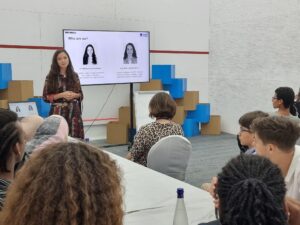
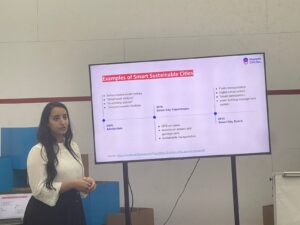
(Left) Dr. Mennatullah Hendawy, (Right) Lamiaa Ghoz during climate friendly cities session of COY17
The session aimed at discussing and documenting youth perspectives on their role in co-creating climate-friendly cities. It included three parts.
Part One – What are sustainable cities?
First, we presented what smart sustainable cities are, then we discussed how an individual’s positionality and intersectionality shape their inquiry, and eventually, we recorded the thoughts of the participants.
According to the United Nations Economic Commission for Europe (UNECE) and the International Telecommunication Union (ITU) (2015), “a smart sustainable city is an innovative city that uses ICTs and other means to improve quality of life, the efficiency of urban operations and services, and competitiveness while ensuring that it meets the economic, social, environmental, and cultural needs of current and future generations.”
The session covered the components of smart sustainable cities, such as smart energy, intelligent governance, smart sustainable mobility, and other IoT technologies used for waste management and air and water quality detection. We also shared examples of existing climate- friendly cities and the steps they take to achieve smart-sustainability objectives from across the world. Zurich prioritizes public transport, digital infrastructure, and intelligent participation. Amsterdam has smart meters, smart work centers, co-working spaces, and public facility sensors. Copenhagen buses include GPS, sewer, trash can sensors, and sustainable transportation.
Part Two – Shaping perspectives
The second part of the session introduced positionality and intersectionality and how they shape individual perspectives. The notion of positionality holds that one’s values, worldview, and temporal and spatial position all influence how they experience the world. Accordingly, gender, color, class, and other aspects of identity are not fixed, intrinsic attributes. Instead, they form a person’s identity and position. This understanding describes intersectionality and refers to how people’s intertwined social identities shape who they are, whereas each identity has varying degrees of privilege and power, and the totality shapes the individual.
As a result, intersectionality and positionality play an important role in molding our thoughts and experiences regarding climate change as well as describing our involvement in climate action, which is the session’s focus.
Part Three – Perspectives on climate action
Finally, the session ended with live recordings of the participants’ thoughts on how they take climate action. The 13 participants came from a wide range of backgrounds and fields. They included economists, officials, campaigners, consultants, financial consultants, and environmental policy students. Although participants came from various contexts, including, for instance, Ecuador, Egypt, Germany, India, Mongolia, Russia, the USA, UAE, and Uzbekistan, they were all engaged in some type of climate action.
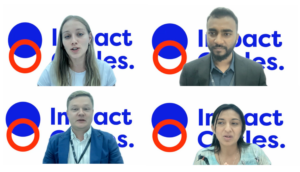
Session participants: Maria, Saikat, Koval, and Jenny sharing their thoughts during the recordings
Participants shared ideas about how they contribute to sustainability in cities through their daily activities and behaviors. For instance, an economist and policymaker from India mentioned that she is keen on eating only seasonal vegetables and fruits, while another participant, who is an advocate based in India, shared, “I make informed choices with regard to what I consume and most of the time, I take the public transportation.” A director of a consulting company in Uzbekistan said that “I divide the waste with my children. I take my shopping bag when I go to the market and I will switch off water, light, and gadgets and control my consumption”. While another participant from the US added that “I take the public transportation, wherever possible, which is easy for me because I live in a city where there is actually transportation publicly available everywhere so that is definitely something conveniently doable for me. I am also vegetarian and trying to reduce my food carbon brands by eating local foods and seasonal foods”.
Parts of the live recordings are planned to be published on the website: Impact Circles e.V.
Key takeaways
First, all participants had creative and influential ways to contribute to creating climate-friendly cities. Moreover, their efforts to promote urban sustainability went beyond the mundane and into their professional lives. For instance, an environmental policy student in the United States focuses her research on how to use sustainable holistic planning systems in rural areas. Another participant from Mongolia is working on building energy-efficient houses and has a startup that provides affordable biodegradable air purifiers.
Secondly, positionality and intersectionality influence each individual’s contribution to a city’s sustainability. Participants from nations with adequate public transit and cycling-friendly street networks commuted by public transportation, cycling, or walking. Participants in the regulatory and advocacy fields felt it more effective to actively interact with their communities and educate city citizens about sustainability.
Lastly, despite the participants’ varying backgrounds and locations, we all agreed that the way towards achieving climate-friendly cities is through collaborative efforts across countries and knowledge transfer.
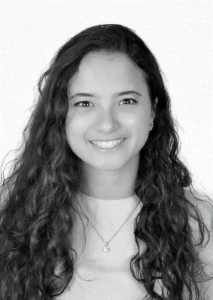
Dr. Mennatullah Hendawy (Ain Shams University and Impact Circles e.V.)
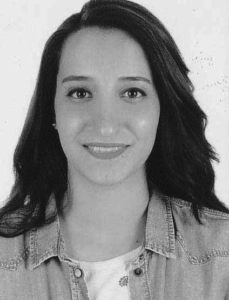
Lamiaa Ghoz (Impact Circles e.V. and German University in Cairo)
Acknowledgments
Thanks to the MOOC Urban AI project for funding our participation in the conference.
Funding note
This project is within the framework of the African Cities Lab project. African Cities Lab is a joint initiative led by EPFL, the Kwame Nkrumah University of Science and Technology (Ghana), the Mohammed VI Polytechnic University (Maroc), Sèmè City campus (Benin), the University of Carthage (Tunisia), the University of Cape Town (South Africa), and the University of Rwanda to contribute to sustainable urban development on the continent. The initiative, funded by the Swiss State Secretariat for Economic Affairs (SECO), aims to create a digital education platform and its content on urban planning and urban development in Africa. The English-French bilingual ACL platform, will offer quality MOOCs and online training for professionals. It will also act as a forum for the exchange of digital educational resources and the management and governance of African cities
Are you currently involved with regional research, policy, and development? The Regional Studies Association is accepting articles for their online blog. For more information, contact the Blog Editor at rsablog@regionalstudies.org.